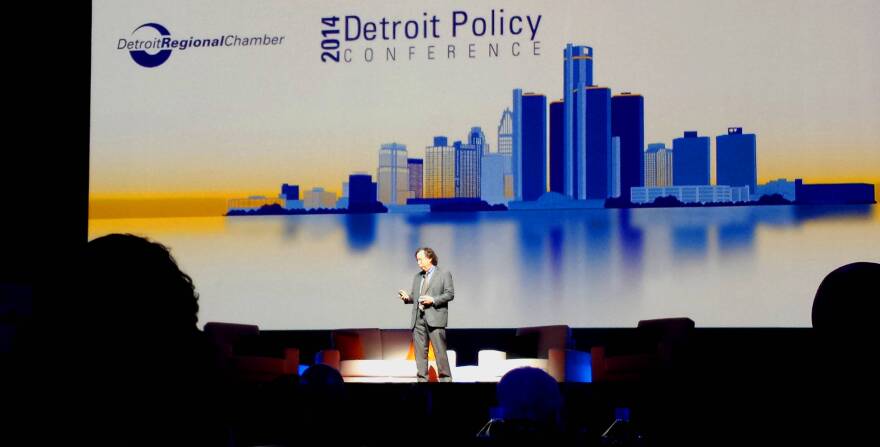On Thursday, the Detroit Regional Chamber held a one-day policy conference focused on Detroit after bankruptcy. The theme seemed to be optimism tempered by realism.
With Detroit’s bankruptcy on an apparent fast-track, a new mayor and city council, and progress in several key areas, there was an air of optimism.
But the Detroit Chamber’s policy conference looked also looked at obstacles.
Thomas Sugrue is a Detroit native and professor of History and Sociology at the University of Pennsylvania. He was a keynote speaker.
“Suburbanites often say, ‘It’s their problem, not our problem.’ Folks in Lansing and outstate say, ‘It’s their problem. I don’t want my tax dollars going into that sinkhole.’”
Besides stressing better regional cooperation, Sugrue said the city must come to grips with the racial divides, political divides and problems of blight, poverty, and poor schools.
“We look out onto a horizon of extraordinary opportunity in the next decade, or two decades, or three decades, but we also look onto a place that is still very much scarred by generations of history.”
Sugrue said while he expects significant improvements in Detroit very soon, he said the longest, most difficult task will be improving Detroit schools.
Sugrue stressed that Michigan’s largest city is also the center of the state’s economic hope. For the rest of the state and its leaders to ignore the city's struggle for solvency would hurt all of Michigan.
Support for the Detroit Journalism Cooperative on Michigan Radio comes from the John S. and James L. Knight Foundation, Renaissance Journalism's Michigan Reporting Initiative, and the Ford Foundation.



